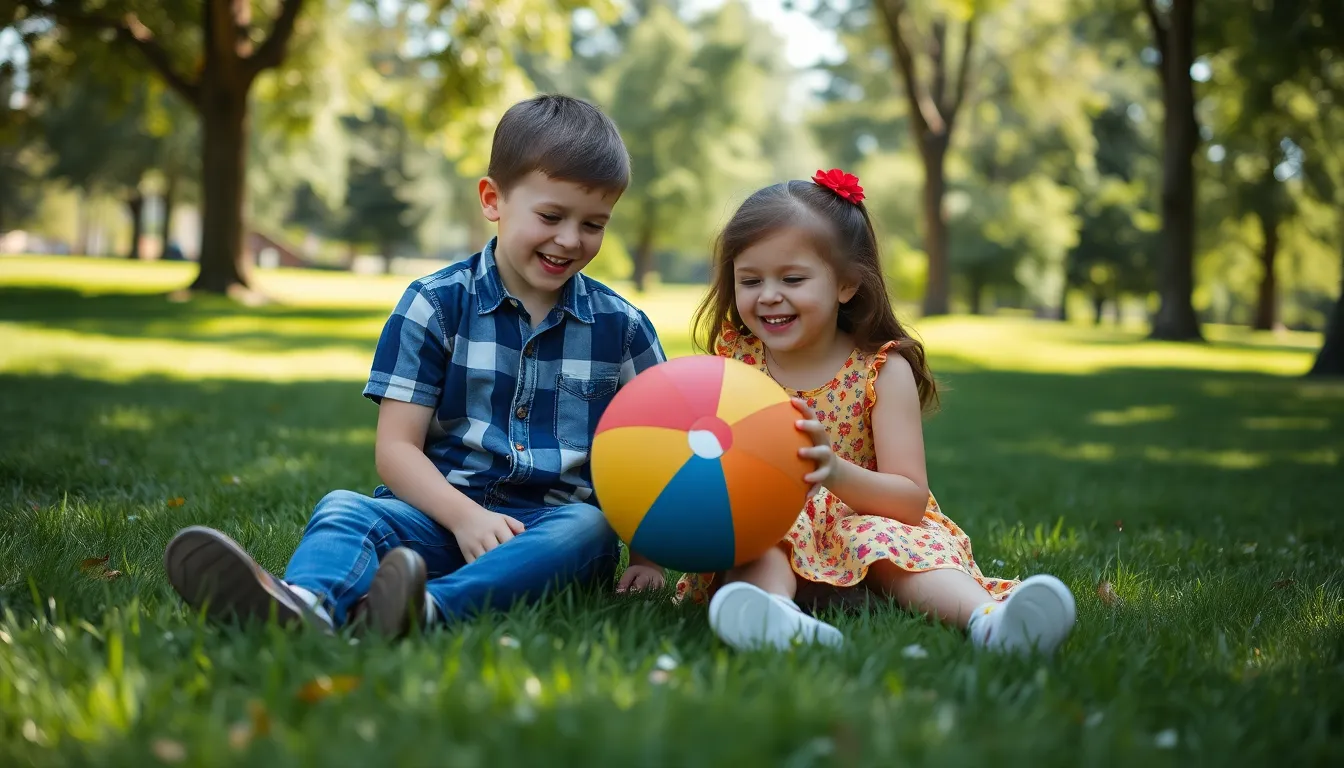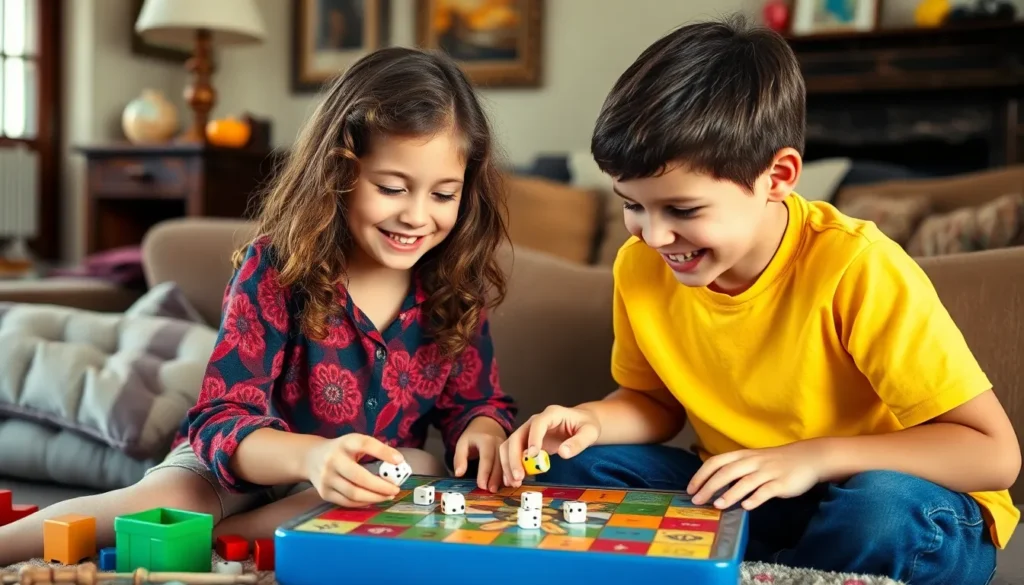Table of Contents
ToggleFoster care siblings share a unique bond that can rival any superhero duo. Imagine navigating the ups and downs of life together, from awkward family dinners to epic pillow fights. In a world where stability often feels like a myth, these siblings find strength in each other, creating a network of support that’s as essential as Wi-Fi in a teenager’s life.
Overview of Foster Care Siblings
Foster care siblings often develop a unique and profound connection that serves as a crucial support system. They share experiences that shape their lives, from joyful playtime to navigating family relocations. This bond helps them cope with the uncertainties associated with foster care placements.
Many siblings find comfort in each other’s presence. They face similar challenges, including adjusting to new environments and building relationships with caregivers. By sharing these struggles, they strengthen their emotional ties.
The impact of these relationships can be significant. Studies indicate that maintaining sibling connections within the foster care system leads to better emotional outcomes and stability. Siblings often act as confidants during transitions, providing reassurance and understanding.
Foster care siblings frequently engage in shared activities that strengthen their bond. By participating in games, school events, and storytelling, they create memories that enhance their relationship. This sense of camaraderie becomes essential in fostering resilience.
Relationships between foster siblings can also influence their personal development. The support they offer cultivates skills such as empathy, cooperation, and conflict resolution. These abilities serve them well, both within the foster care system and in future relationships.
In some cases, siblings may face separation due to placement decisions. Despite this challenge, continued communication through visits or phone calls helps preserve their connection. Maintaining these relationships remains vital for their well-being.
Understanding the dynamics of foster care siblings aids in delivering appropriate support and services. It emphasizes the importance of inclusion in placement decisions, ensuring that siblings remain together whenever possible. By prioritizing these connections, foster care systems can promote stability and emotional health for all children involved.
Importance of Sibling Relationships in Foster Care

Foster care siblings often provide each other with essential emotional support. During difficult transitions, these relationships become invaluable. Trust and understanding grow as these children navigate uncertainties. Studies show that siblings frequently serve as confidants, allowing them to share feelings and fears. Engaging in shared experiences, like games and storytelling, enhances their emotional bonds. This connection fosters resilience and helps them cope with the challenges of foster care.
Sibling relationships also offer stability and continuity in an otherwise unpredictable environment. Placing siblings together or facilitating ongoing communication can significantly improve emotional health. Keeping siblings connected allows them to maintain familiar love and support. When siblings face placement decisions together, they feel less alone. This ongoing connection cultivates a sense of safety and security, essential for their overall well-being.
Challenges Faced by Foster Care Siblings
Foster care siblings encounter several challenges that affect their emotional and psychological well-being. Understanding these issues highlights the importance of sibling bonds in navigating their experiences.
Separation Issues
Separation from siblings poses a significant challenge in foster care. Research shows that many siblings face placement in different homes, which disrupts their support system. This lack of proximity may lead to feelings of abandonment and loneliness. Maintaining connection becomes crucial for emotional stability, but frequent moves often complicate this. Those who remain together benefit from a shared understanding of their situation, strengthening their bond. Siblings often serve as each other’s primary source of comfort during trying times, emphasizing the need for consideration in placement decisions.
Identity and Belonging
Siblings significantly influence each other’s sense of identity and belonging in foster care. Shared history creates a foundation for understanding and support. A strong sibling connection fosters a feeling of belonging amidst uncertainty. Studies indicate that sibling relationships facilitate an improved sense of self, allowing children to navigate their identities more easily. Comfort arises from knowing that someone shares similar experiences and struggles. This sense of belonging plays a critical role in boosting overall emotional health, helping them face the challenges of foster care with resilience.
Strategies to Support Foster Care Siblings
Supporting foster care siblings requires intentional strategies to maintain their strong bond. Effectively managing their connections offers vital emotional support.
Maintaining Connections
Keeping siblings together significantly benefits their emotional health. Siblings in the same foster placement can share experiences and feelings that foster their resilience. Effective communication tools, like regular check-ins and virtual visits, help maintain connections when placements separate them. Foster parents can encourage shared activities, like family game nights, to strengthen these ties. Celebrating milestones together fosters a sense of belonging. When siblings remain connected during transitions, they report higher self-esteem and emotional stability.
Inclusive Foster Care Practices
Implementing inclusive practices fosters a supportive environment for siblings. Prioritizing sibling placements reduces emotional trauma linked to separation. Coordinating with agencies ensures siblings’ needs are addressed throughout the fostering process. Providing opportunities for siblings to engage with each other and their caregivers promotes understanding and trust. Creating a welcoming atmosphere allows siblings to express feelings freely. Training foster parents on the unique dynamics of sibling relationships enhances their caregiving abilities, promoting stability for all involved.
Foster care siblings share an extraordinary bond that not only provides emotional support but also fosters resilience in challenging circumstances. Their unique connection helps them navigate the complexities of foster care together. Prioritizing sibling placements and maintaining communication can significantly enhance their emotional well-being. By understanding the importance of these relationships, foster parents and caregivers can create a nurturing environment that supports the stability and growth of these children. Ultimately, the strength of foster care sibling bonds plays a crucial role in shaping their identities and promoting a sense of belonging in an often unpredictable world.





